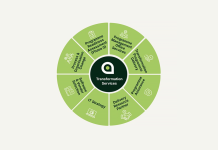Haroon Ahmed discusses why public sector teams should be thinking about ethical data practices at every stage of the service design journey
Data ethics evaluates data practices that have the potential to adversely impact people and society. It’s an issue taking prevalence across the public and private sectors as we explore the ethics of how our personal data is collected, stored and used.
It’s particularly relevant today, given the abundance of new technologies we use in our day-to-day lives. Companies and organisations are collecting data about us in all sorts of ways; from the way we drive, to how much energy we consume to the things we search for online. All of this data is being mined and machine learning is being used to create automated smart services for us.
All of this data is being mined
But, in recent years, questionable data practices have hit the headlines. Take the Facebook–Cambridge Analytica data scandal, for example, where personal data belonging to millions of Facebook users was collected without their consent by British consulting firm Cambridge Analytica, and predominantly used for political advertising.

Data is nonsense – it’s what you do with it that matters
Away from the international scandals, all too often our data is collected without a clear strategy. I’m a big believer that data is absolute nonsense. It’s what you do with it that matters. It’s the narrative and the analysis you add on top that’s useful.
There’s currently a significant gap in data roles within the government. That’s considering the amount of data experts coming through universities too. We need more people who understand data to analyse it and then make decisions based on it.
A lot of the time people confuse what data means in terms of correlation and causation. This is when we look at things that are seemingly linked, but in reality, they’re entirely separate, they just happen to correlate. For example, in the US, if you plot the number of people who drown by falling into swimming pools each year on a graph against the number of films Nicholas Cage has appeared in, there happens to be a correlation. But that doesn’t mean either has anything to do with the other.
If we don’t have an ethical framework to refer to, sometimes we come up with these nonsensical statistics that are peddled out to help tell a particular narrative.
There are effective Data Ethics Frameworks out there, including this GOV.UK guidance for public sector organisations on how to use data appropriately and responsibly when planning, implementing and evaluating a new policy or service. All too often, however, frameworks can be unclear to the wide-ranging organisations that are capturing, storing and analysing data today.
An ethics framework is of course extremely helpful, but it needs to be more of a living document for each organisation. Teams and whole organisations should have a shared outlook on what data ethics is and how you should be deploying it.
Why design with ethics in mind?
Ethics by design is a conversation that needs to happen, particularly when it comes to digital public sector services. However, all too often this has been an afterthought, to the detriment of the public.
All public services are made with good intentions, but if you don’t design with ethics in mind, what are you leaving yourself, and your users, open to?
We need to be constantly questioning; where has the data come from, is it reliable, and is it representative?
User-centred design must be an important consideration at every stage of a design project, and data ethics needs to be considered in the same way. We need to be constantly questioning; where has the data come from, is it reliable, and is it representative?
An enabler to better public services
We don’t want data ethics to be a roadblock. We don’t want it to stop or slow down innovation. We want it to be an enabler to design services and technologies in the best way possible. And we need it to establish trust. Everybody should be able to see how their data is being captured, stored and used.
We don’t want data ethics to be a roadblock
Organisations need help in developing strategies to build data platforms by collecting data from different sources and putting it in one place, so it can be correctly analysed and used effectively. They also need support with data engineering; creating machine learning and dashboards. Yet many public sector teams are still struggling with this. It’s often something they haven’t even thought about… until something goes wrong.
Support from the top down within public sector departments is also needed. CTOs need to be thinking about data ethics from the word go. Data ethics are essential to ensure that privacy, security and transparency standards are met. You can’t sleepwalk into using data with the assumption that your practices will be ethical by default. You have to put the hard work in to make sure they are.
Written by Haroon Ahmed, Commercial Partner for Data, at Made Tech











